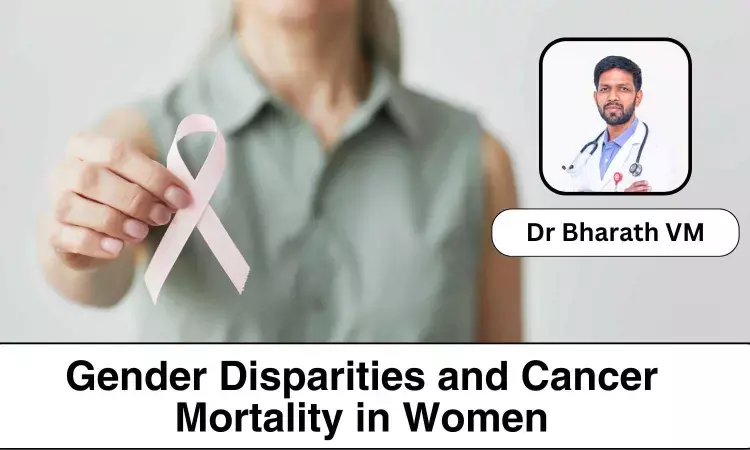- Home
- Medical news & Guidelines
- Anesthesiology
- Cardiology and CTVS
- Critical Care
- Dentistry
- Dermatology
- Diabetes and Endocrinology
- ENT
- Gastroenterology
- Medicine
- Nephrology
- Neurology
- Obstretics-Gynaecology
- Oncology
- Ophthalmology
- Orthopaedics
- Pediatrics-Neonatology
- Psychiatry
- Pulmonology
- Radiology
- Surgery
- Urology
- Laboratory Medicine
- Diet
- Nursing
- Paramedical
- Physiotherapy
- Health news
- Fact Check
- Bone Health Fact Check
- Brain Health Fact Check
- Cancer Related Fact Check
- Child Care Fact Check
- Dental and oral health fact check
- Diabetes and metabolic health fact check
- Diet and Nutrition Fact Check
- Eye and ENT Care Fact Check
- Fitness fact check
- Gut health fact check
- Heart health fact check
- Kidney health fact check
- Medical education fact check
- Men's health fact check
- Respiratory fact check
- Skin and hair care fact check
- Vaccine and Immunization fact check
- Women's health fact check
- AYUSH
- State News
- Andaman and Nicobar Islands
- Andhra Pradesh
- Arunachal Pradesh
- Assam
- Bihar
- Chandigarh
- Chattisgarh
- Dadra and Nagar Haveli
- Daman and Diu
- Delhi
- Goa
- Gujarat
- Haryana
- Himachal Pradesh
- Jammu & Kashmir
- Jharkhand
- Karnataka
- Kerala
- Ladakh
- Lakshadweep
- Madhya Pradesh
- Maharashtra
- Manipur
- Meghalaya
- Mizoram
- Nagaland
- Odisha
- Puducherry
- Punjab
- Rajasthan
- Sikkim
- Tamil Nadu
- Telangana
- Tripura
- Uttar Pradesh
- Uttrakhand
- West Bengal
- Medical Education
- Industry
Do Gender Disparities Impact Cancer Mortality in Women? - Dr Bharath VM

Gender inequality persists as an ongoing social issue, manifesting in various aspects of life. From wage disparities to under recognition in sports and politics, women frequently encounter barriers hindering their access to resources and well-being.
Although progress has been made to address these disparities, one area that has been overlooked is the impact of gender inequality on women's health, specifically in the realm of cancer care.
The Lancet report has presented data on the gender inequality experienced by women and has also outlined policies to help them attain an equal position on par with men.
Women interact with cancer in multiple and complex ways:
Cancer, the world's second-largest killer after heart disease, is on the rise in India. The study report by ICMR and NCRP indicates that the number of cancer patients, currently around 14.6 lakh, will reach 16 lakh by next year.
The gender inequality in cancer care extends beyond mere statistics; it profoundly impacts women in various roles. Women engage with cancer as healthy individuals participating in prevention and screening, as survivors living beyond diagnosis, caregivers for loved ones, advocates, healthcare professionals, researchers, and policymakers.
The Lancet report highlights that cancer ranks among the top causes of premature mortality for women globally, yet it is often deprioritized in healthcare agendas.
According to the report, the elimination of key risk factors or early detection and diagnosis could save approximately 1.5 million lives. Another 800,000 deaths could be avoided if all women had access to high-quality cancer care.
Globally, women face financial challenges in coping with cancer, aggravated by fewer financial resources than men. In the cancer workforce, women report pervasive gender-based discrimination, including bullying and sexual harassment.
Shockingly, only 16% of global cancer-related organizations are led by women. Moreover, the unpaid caregiving work for those with cancer is predominantly shouldered by women, representing a significant percentage of national health expenditures in various countries.
A Call to Action
Acknowledging the magnitude of gender disparities in cancer care, the Lancet Commission proposes ten policies and a comprehensive working plan. The core objectives include prioritizing data collection, ensuring equitable healthcare access, promoting screening and early diagnosis, spreading awareness among rural women, and advocating for equal opportunities and pay standards.
The Lancet Commission report challenges prevailing misconceptions that addressing gender inequality in cancer care is a mere feminist or politically driven agenda.
Instead, it emphasizes the urgency of recognizing the undeniable numbers and statistics that reveal a disparity in the treatment of women facing cancer.
The report serves as a call for collective responsibility, urging fathers, brothers, and husbands to stand up for women's rights and equity in cancer care and healthcare at large.
As society strives for inclusivity and equality, addressing gender disparities in cancer care is not just a moral imperative but a public health necessity.
So, a roadmap for systemic change, emphasizing the need for individual and collective action to bridge the gap in cancer care, is highly recommendable. It is time to move beyond rhetoric and translate awareness into tangible policies that ensure women receive the equitable, compassionate care they deserve in their battle against cancer.
Dr Bharath VM (MBBS, MS (General Surgery), M.Ch (Surgical Oncology)) is a Consultant (Oncosurgeon) at KIMSHEALTH, Trivandrum having over 18 years of experience overall and 8 years of experience in the field of Oncology. He specialises in Colorectal and gastric malignancies, Breast and sarcoma and gynaecological malignancies, Vascular access – chemoport insertions, Minimal access in Oncosurgeries.


